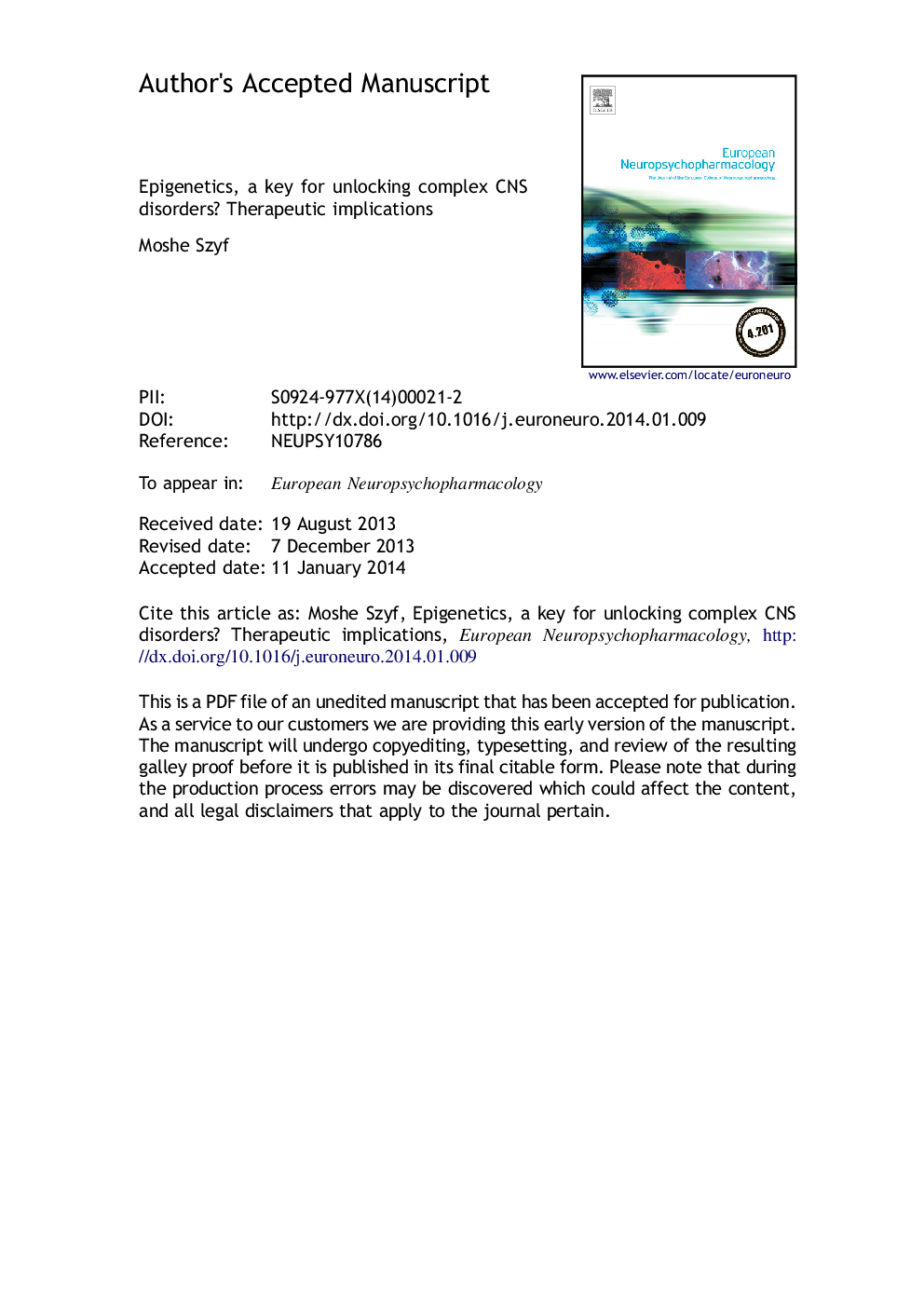| Article ID | Journal | Published Year | Pages | File Type |
|---|---|---|---|---|
| 10298655 | European Neuropsychopharmacology | 2015 | 52 Pages |
Abstract
Aberrant changes in gene function are believed to be involved in a wide spectrum of human disease including behavioral, cognitive and neurodegenerative pathologies. Most of the attention in last few decades have focused on changes in gene sequence as a cause of gene dysfunction leading to disease and mental health disorders. Germ line mutations or other alterations in the sequence of DNA that associate with different behavioral and neurological pathologies have been identified. However, sequence alterations explain only a small fraction of the cases. In addition there is evidence for “gene-environment” interactions in the brain suggesting mechanisms that alter gene function and the phenotype through environmental exposure. Genes are programmed by “epigenetic” mechanisms such as chromatin structure, chromatin modification and DNA methylation. These mechanisms confer on similar sequences different identities during cellular differentiation. Epigenetic differences are proposed to be involved in differentiating gene function in response to different environmental contexts and could result in alterations in functional gene networks that lead to brain disease. Epigenetic markers could serve important biomarkers in brain and behavioral diseases. Moreover, epigenetic processes are potentially reversible pointing to epigenetic therapeutics in psychotherapy.
Keywords
Related Topics
Life Sciences
Neuroscience
Biological Psychiatry
Authors
Moshe Szyf,
